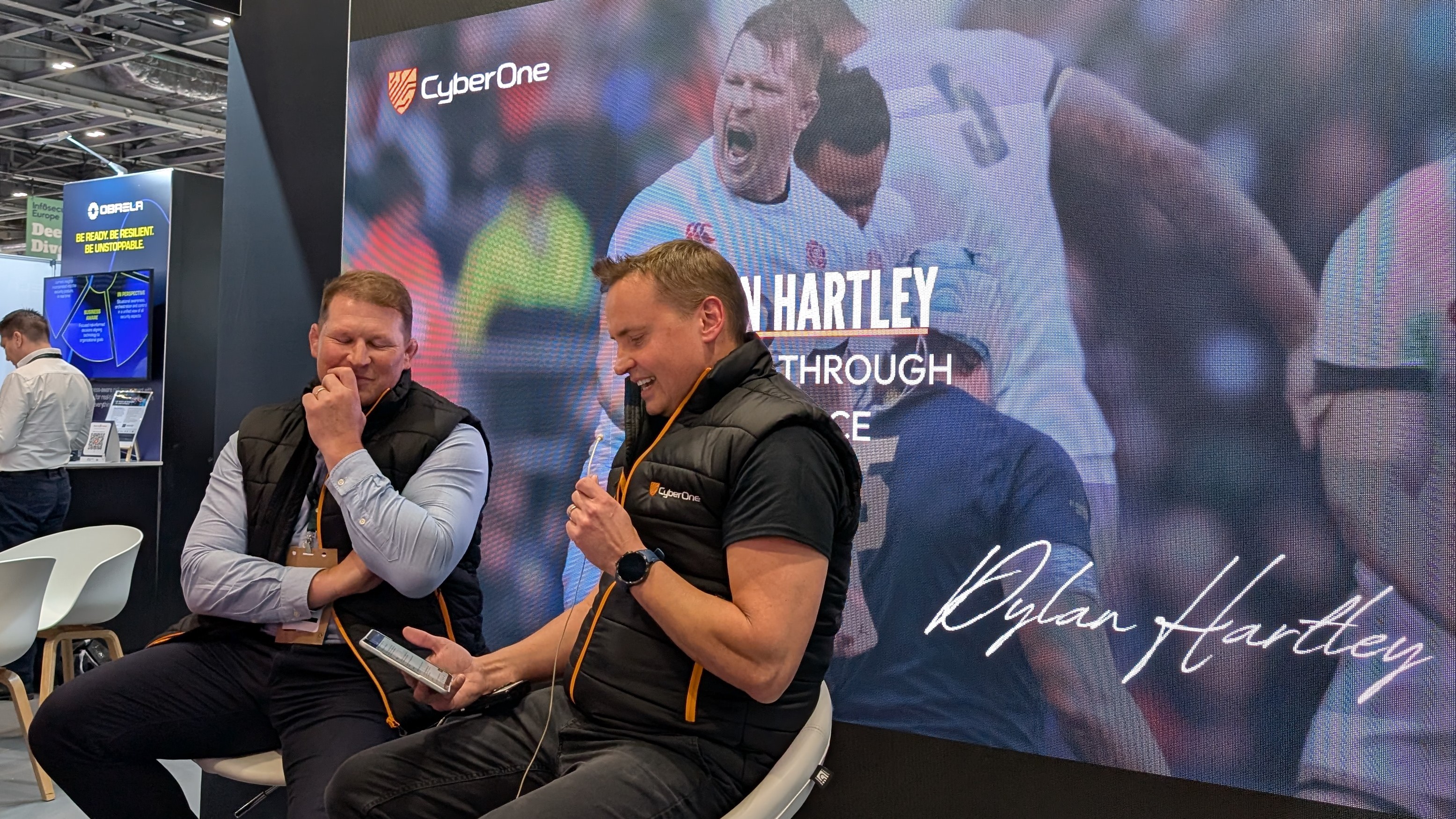Although the worlds of sports and cybersecurity do not seem like clear allies, there are many parallel between the two.
In the recent event of the Infoscience Europe 2025, I had to know exactly, with the opportunity to talk to England’s Rugby Legend Dilin Hartley and CEO’s CEO Dominic List.
So what can both fields tell each other? It turns out, a lot …
All about people
“In any industry, these are all people – and if you want to take the best of people, it’s a lot of cross -over,” former England captain Hartley told me.
“So if you want the best cyber, and the best, you need the best people, the best system, and the best planning and implementation – (then) if you have found the right people in the right room with vision, and have a plan you can do some good things.”
“In CyberScript, we are not really the Alpha Men’s pitch -run team – it’s a very different setup,” the list laughs, “but when you enter it, the team has a performance (theme), it is gaming … and all of them are to find a failure, and to find the same, to find the same.
When I talk about dealing with the latest risks I always ask CyberScoreity teams about the need to remain top in my game
“Absolutely – in this element, the cybersecurity is probably a bit more brutal than the rugby,” said the list, “There are very few ways (where it’s the matter) – but it’s one of them!”
“This is a huge phrase in our industry. The hacker just needs to be fixed once, we need to correct it every time.”
“This is no point scoring game where we’re trying to go through 80 minutes and be the best – sometimes you get less than it in the attack window, the first increase can be an hour … so we need to control this hack in the timeframe.”

Since retiring in 2018, Hartley says he is suffering from a few different industries, and is currently working a lot in insurance space.
“10 years ago, if you mention CyberSocracy, I don’t think someone would have had a eyelid batting – if you had said that, maybe they may!” He laughs. “In insurance, (this) was the killer of the conversation – but now everyone knows what cybersecurity is.”
He added, “The amount of cybersonicity packages we are doing for the businesses that are ready, and how we are looking for companies to increase the price increase is to ask about their cyber policy, and many people are ready.”
“If you own a business, if you are not ready, you have got the head in the sand.”

AI is clearly in mind for many businesses, but the seeming thirst for data and information to train models can lead to a major problem for the security teams.
“Everyone is trying to enable the AI - but of course, there is a lot of treachery around it, whether AI is accessing your internal network, your internal information,” you are thinking about, “You are thinking, I have shut down all my data that we can change the information that we can change, and we can change any information.
I ask him that cybersecurity firms will play a leading role.
The list states that, “This is a real challenge,” they have to keep the tireless speed of Ai (and) (and) it is terrifying that some of it is happening together – but on the other hand, it is like the moment of the iPhone, where before, the corporate stopped it all (but then) the CEO.
He added, “We are all trying to be more connected – but more challenges arise, bringing your operational technology and bringing all your mobile workers to the global workforce, enables this friction work, but with this make it safe, it is a real challenge.”
“Getting the right to the basics is a huge part for it. We always talk about it, the basics to lock the firewalls, patches, security, but we have a lot more things to add right now … it’s reasonably easy to lock it and still control it, but in reality you will know that you will know.
So it seems that, in cyberscript – like rugby – get the basics properly, make sure you have the right people around you, and success is in your grip.
